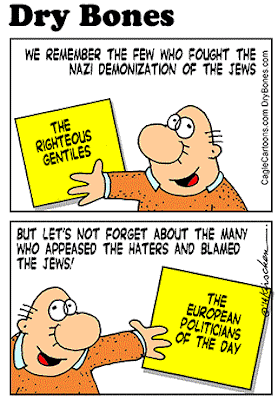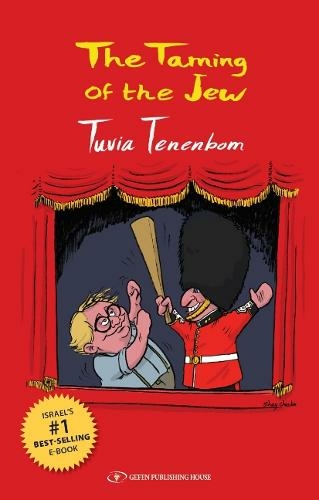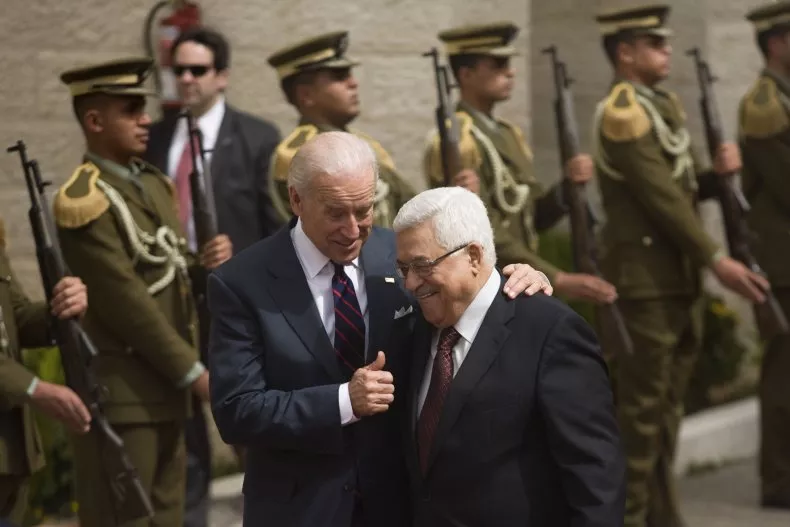Rafael Bardaji on Why Europe "Will Remain Hostile to Israel"
Rafael Bardaji, executive director of the Friends of Israel Initiative and Spain's former national security advisor, spoke to participants in a February 15 Middle East Forum webinar (video) about the persistent "clash of interests ... between the European Union (EU) and the Israeli government" likely to endure for the foreseeable future.
According to Bardaji, three points of friction between the EU and Israel are prominent this year. The first is the decision by the International Criminal Court (ICC) and its former prosecutor, Gambian lawyer Fatou Bensouda, to "accept the Palestinians as a national state ... able to ask for investigation, prosecution and indictment of a non-state-member of the ICC," namely Israel. "The Europeans are very well attached, by heart, to the ICC despite all violations of international law regarding this decision." Bardaji said the most effective way to counter the ICC's illegal action is to approach those European powers opposed to Bensouda's decision and persuade them to defund the ICC.
The second point of friction concerns Iran. Despite Tehran's violations of the Joint Comprehensive Plan of Action (JCPOA), the EU is eager to "keep it afloat" and press the U.S. to lift its sanctions imposed under Trump in order to resume their own trade with Tehran. The Biden administration's clear desire to reach out to Iran for a new agreement will encourage the Europeans to "offer even more concessions to Iran" to hasten a deal.
The third point of conflict is European eagerness to "pull the Palestinians back into the center stage" of the Middle East peace process, despite the fact that their longstanding belief that "without them, nothing can be done in the region" has been proven wrong. The Abraham Accords established as a result of Trump's "thinking out of the box" bore results, but the Biden administration has expressed "doubts about nurturing new countries" to join the accords, which will cause the Europeans to stiffen their own resistance.
Honest Reporting: NYT, CNN Ignore Former ‘Moderate’ Palestinian Authority PM’s Apparent Radicalization
Former Palestinian Authority prime minister Salam Fayyad recently stated his belief that in order to run in prospective Palestinian legislative and presidential elections or, more generally, be a member of any Palestinian political entity, one need not accept the three guiding principles of the Quartet — a body made up of representatives from the United States, European Union, Russia and the United Nations.Thanks to Jordan, Jews can't pray on the Temple Mount - analysis
The Quartet was established to facilitate peace negotiations and laid out basic criteria for the Palestinian leadership to abide by as a basis for talks: namely, to recognize the State of Israel, respect previous diplomatic agreements signed with Jerusalem and renounce violence.
Yet, the New York Times, CNN and other major news organizations that had once praised Fayyad as the personification of a new, moderate, conciliatory Palestinian political echelon have not reported on his apparent rejection of Israel’s right to exist or the need for the Palestinians to adhere to the Oslo Accords and end their support for attacks on Israelis. New York Times: Fayyad as a Model of Palestinian Moderation
Salam Fayyad is no obscure figure.
Last week, he announced that he would be submitting a list of independent candidates who will run in the May 22 elections for the Palestinian Legislative Council. Fayyad served as the Palestinian Authority finance minister under Yasser Arafat from 2002 to 2005 and, following Hamas’ takeover of the Gaza Strip in an internecine war, was sworn in as prime minister of an emergency West Bank-based Palestinian government on June 15, 2007.
PA President Mahmoud Abbas reappointed him to the position in 2009, a post he held until 2013.
He has been lauded by the media as an economic reformer who cracked down on corruption, while his views on the Israel-Palestinian conflict were deemed a welcomed breath of fresh air.
During Fayyad’s tenure, former New York Times Jerusalem Bureau Chief Steven Erlanger quoted the PA prime minister expressing ostensible support for co-existence with the Jewish state:
It is obvious that Israelis and Palestinians need to live together, he [Fayyad] said. “There should be no question in anybody’s mind in Israel that this is what this is about, in a way that leads to us living like them, as free people, in a country of our own, right next door to them. It’s not that we have to; we want to.”
In the 1994 peace agreement between Israel and Jordan, Israel stated that it “respects the present special role of the Hashemite Kingdom of Jordan in Muslim Holy shrines in Jerusalem.” In other words, the Jordanian Islamic Trust, known as the Wakf, would be responsible for the day-to-day administration of the Al-Aksa Mosque.
Jordan has taken that to mean that it can demand things like the removal of metal detectors from the site, installed immediately after a terrorist attack in which Muslim Israelis murdered two Druze Israeli police officers.
Plus, Jordan thinks it is within its rights to demand that high-profile Israelis not visit the Temple Mount, despite the agreement stating that “there will be freedom of access to the places of religious and historical significance.”
King Abdullah also declined to allow Israel to continue to lease small pockets of farmland from Jordan, as detailed in the peace agreement, further contributing to the decline of relations.
Beyond that, he’s done nothing to counter the coldness of the peace between Israel and Jordan, and rampant anti-Israel sentiment in society. Jordan has blocked the extradition to the US of Ahlam Tamimi, one of the masterminds of the 2001 suicide bombing in a Sbarro in Jerusalem, in which 15 were killed and 122 injured; she has since become a TV star in Jordan.
A 2019 study by IMPACT-se, which analyzes the content of textbooks in the region, found "minimal recognition of Israel and the peace treaty," which it called "cause for concern." Official textbooks warn of the "Zionist Danger," and describe Israel as "a Zionist entity with no rights." One textbook expresses a "wish to see Palestine liberated from the Zionist Occupation;" another compares Zionism to Nazism and fascism.
But not letting the prince have as many armed guards as he wants at Temple Mount is the real problem in Jordan-Israel relations.
Maybe Prince Hussein can talk to Oprah about it.






















 Sana, March 11 - Families of a man and woman hoping not to be dismembered by missiles from an American Predator aircraft at the celebration of their nuptials lamented this week that securing a venue that can accommodate such a preference will cost them a metaphorical arm and leg.
Sana, March 11 - Families of a man and woman hoping not to be dismembered by missiles from an American Predator aircraft at the celebration of their nuptials lamented this week that securing a venue that can accommodate such a preference will cost them a metaphorical arm and leg.





















